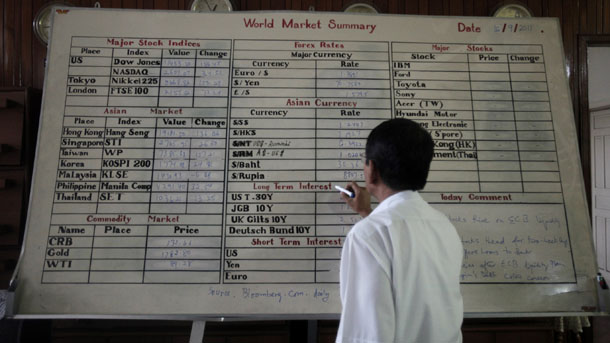Burma’s businesspeople say they are preparing for the realization of the Asean Economic Community (AEC) in 2015 by setting up public limited companies in the belief that the country’s stock exchange will drive economic development.
Economics experts in the former pariah state say that 96 percent of businesses in Burma are SMEs (Small and Medium Entrepreneurs), which will not be able to survive once the Foreign Direct Investment (FDI) law is put in place.
“The stock market is main engine that will drive economic development without having to borrow from banks. It follows therefore that public companies are essential,” said economist Hla Maung.
Speaking to The Irrawaddy, a major shareholder in the Myanmar Agribusiness Public Corporation (MAPCO), said, “Assuming the FDI is followed by mass investment, local businesspeople have only three options: to sell off their businesses; to change industries; or to cooperate. I am guessing that setting up new public companies is the right way to complete the move to real economic development.”
According to a Myanmar Investment Commission (MIC) spokesperson, there were no more than 21 public limited companies in the country before the 2011-12 fiscal year. In the last year, seven new firms have gone public, a 33 percent increase. They are: MAPCO; Myanmar Citizens Bank; Myanmar Agricultural & General Development; Myanmar Edible Oil Industrial and General Development Public Ltd; FMI Company; and Gold Industrial.
“The authorized capital cost to set up a public limited company is 500 million kyat (US $560,000),” he said.
Publicly traded companies first appeared in Burma in 1990. However, according to official data from the MIC, only one percent of them are privately owned companies.















